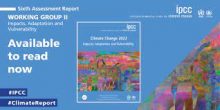When they say we need fossil fuels…….The primary driver of inflation around the world is fossil fuels. Economies are addicted to fossil fuels at every level: mobility, energy production, agriculture and goods production. When the prices of oil and gas go up, every other price tends to go up. Actually, high fossil fuel prices are historically inseparable from inflation and economic crises. Mark Zandi, chief economist at credit rating agency Moody’s, said in an article for Vox that “every recession since World War II has been preceded by a jump in oil prices”. And there is a term for it: fossilflation.
Factors driving fossil fuel prices are many, and diverse. Most of the time, though, these come directly from producing countries, which raise and lower production, thus flooding or drying up the market. This is often used as a political tool, driving millions of people into despair. Here is just a sample of the many ways of how fossilflation happens:
- The market-rigging actions of the OPEC Plus cartel (including Russia);
- Profiteering on energy supply disruptions due to Russia’s invasion of Ukraine;
- Climate damages (a.k.a. climateflation) Extreme weather, climate and water-related events caused almost $1.5 trillion of economic losses in the decade to 2019, up from $184 billion in the 1970s, according to a World Meteorological Organization (WMO) report.
- Embedded energy costs across all classes of consumer products and business services;
- Food system effects including embedded fossil fuel costs and climate damage;
- Embedded climate risk and liability costs;
- Sovereign debt stresses driven by fossil fuels, including:
a. Public spending and sovereign debt burdens resulting from disaster response;
b. Direct spending on disaster response;
c. Extremely high, punishing interest rates linked to that spending compelled by actions a country did not initiate or decide;
d. All-time record fossil fuel subsidies ($7 trillion), linked to rigged fossil fuel price spikes;
e. Public spending to compensate consumers for unaffordable price shocks linked to higher embedded energy costs.
There is one solution: move away from fossil fuels. We need to do it fast, and we need to do it fairly. That is why at COP 28, Citizens’ Climate International is linking arms with many organisations and calling for a fossil fuel phaseout.
By breaking free of coal, oil and gas, and replacing them with renewable energy sources, we will protect our planet and our economy.
Summary
The primary driver of inflation around the world is fossil fuels. In fact there is a term for it: fossilflation. There is a simple solution: move away from fossil fuels. We need to do it fast, and we need to do it fairly.
That is why at COP 28, Citizens’ Climate International is linking arms with many organisations and calling for a fossil fuel phaseout. By breaking free of coal, oil and gas, and replacing them by renewable energy sources, we will protect our planet and our economy.


